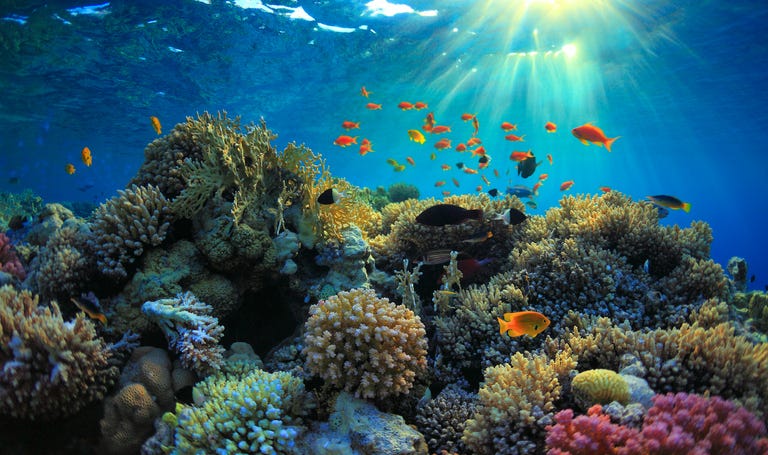
A new study has revealed that coral reefs are being wiped out worldwide as climate change continues to be responsible for rising temperatures in oceans. On Tuesday, researchers warned that the issue is being seen around the world.
Between 2009 and 2018, the world lost 14% of its coral. To paint the picture, the amount of coral lost in those nine years is the same as the amount currently living in Australia's reefs, the Global Coral Reef Monitoring Network found.
Researchers at the network said that rising sea surface temperatures, fishing, pollution, and construction have all played a part in killing coral reefs, but coral bleaching has done the most.
When water becomes too warm, the corals evict algae that they shelter in return for food; when a coral turns white, or is bleached, it's because the algae have been away for too long, and it is beginning to starve to death.
In 1998, 8% of the world's coral was killed when a mass global bleaching event occurred. The study used data from over 40 years, and 73 countries showed that we are now seeing the largest threat to the underwater species ever.
The primary damage is being done to reefs in South Asia, Australia, and the Pacific, but other regions are also seeing the destruction.
While the danger of seeing more coral reefs killed off is real, what we are now seeing is not the apocalypse, as the study showed that underwater ecosystems have bounced back in the past.
According to researchers, a lot can still be done if world governments continue limiting emissions.
World leaders are set to meet next week to discuss new ways that ecosystems can be protected. This study will help show the damage that can be done if global warming is allowed to run rampant.
With coral reefs comes food, jobs, and protection. If they were to disappear, millions of people would be affected. The economy would also see a big hit as they bring in $2.7 trillion a year in goods and services, including $36 billion in tourism alone, the Washington Post reported.
Coral reefs are home to 25% of all marine animals and plants, while they also offer protection from flooding for 500 million residents.



